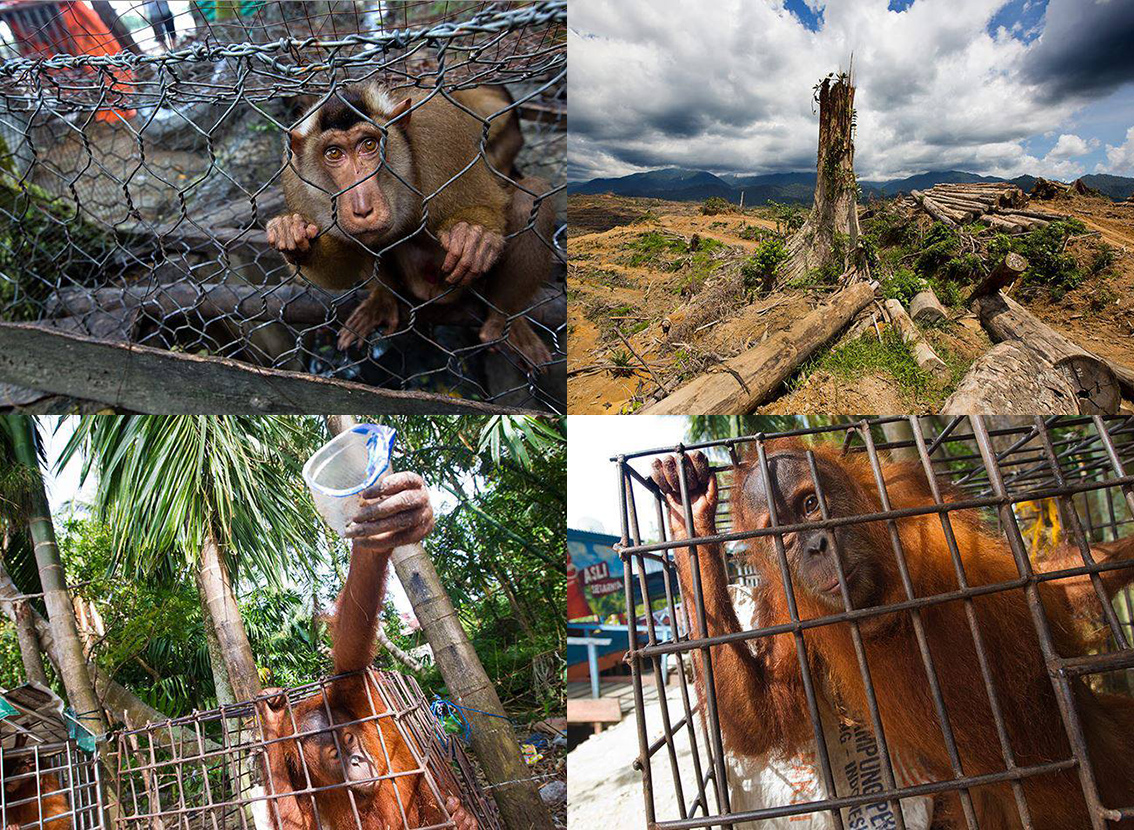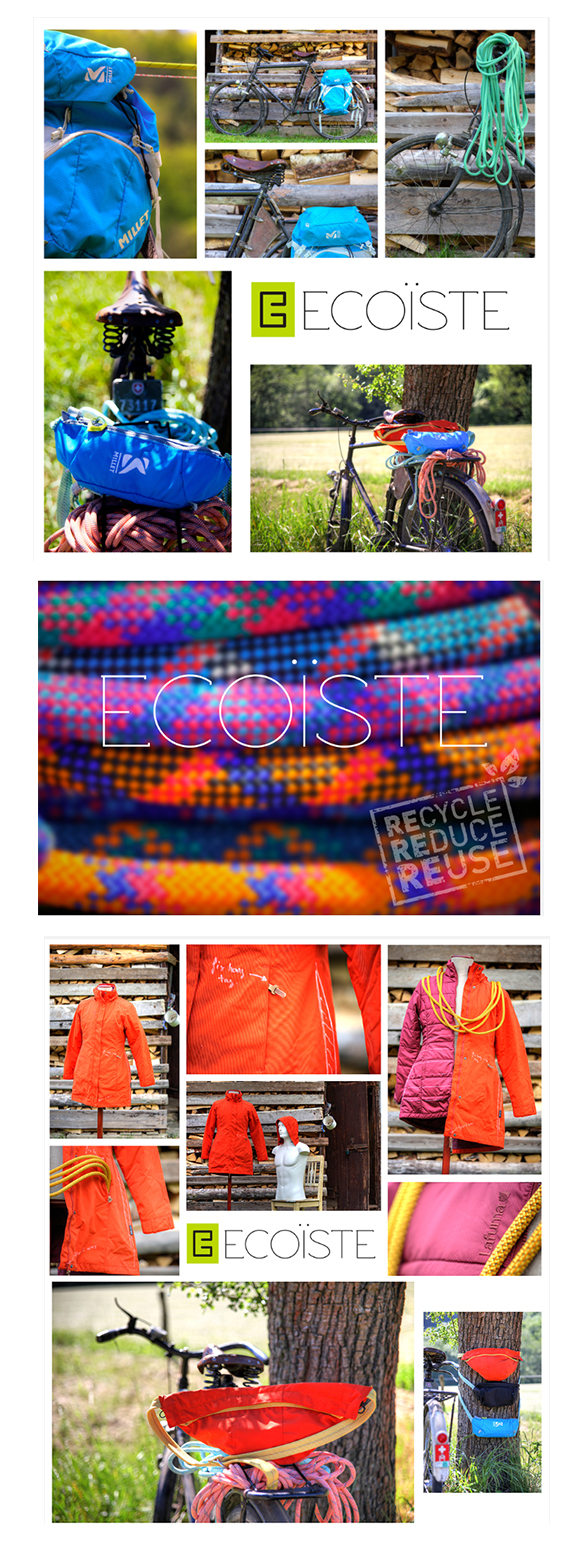Say NO to palm oil!
Text: Anna Plaszczyk, photos: Greenpeace
19 December 2021
Borneo and Sumatra. These two islands once used to be wild paradise on earth. Nowadays they are hell for animals. And we all contribute to this hell... by buying palm oil!
Each hour in Indonesia and Malaysia forests of the size of 300 football fields are being cut. In their place monoculture palm plantations are formed. Palm oil is cheap and so – desirable in almost all areas of production. Annually, 50 million tons of it goes on the market. Even now palm oil plantations cover 12 million hectares of lands that previously used to be rainforest. Every year because of the palm oil production, forests of an area equal to North Korea are being cut.
For the past 20 years in this way 90% of orangutans habitats have been destroyed. For this period of time, according to official data, more than 50 000 of these animals have died. Environmentalists estimate that 6 out of 12 of these monkeys are killed by palm oil farming. Planters consider orangutans as pests. Many of them die under the wheels of heavy equipment, others are beaten to death or set on fire.
Experts have calculated that orangutans may extinct within 5 to 10 years. Till 2033 there will be no land on which these animals could live. This monkey is our closest relative. Our DNA is consistent in 97%! The case of Sumatran tiger is even more dramatic. This wild cat, according to the scientists, will completely extinct already in three year time. Sumatran rhino and many other species living in the rainforest are also endangered.
Palm oil plantations are also a global threat, which increasingly affects us all – even in Europe or in America. Burning lasts of rainforests for the palm oil cultivation is the cause of the greenhouse effect. Indonesia is the third worlds largest emitter of carbon dioxide. Only the U.S.A. and China are higher.
Few years ago, after the emission of the BBC documentary "Dyeing for a Biscuit", there has been loud discussion about the palm oil and its cultivation. At the same time, Greenpeace started a campaign to convince large companies to remove palm oil from their products. In this way, Unilever – Dove brand manufacturer, supported a moratorium for establishing new palm oil plantations in the rainforest. While Nestle has committed to eliminate companies, whose activities do harm the environment from their supply chain.
What can we, the Europeans do, to protect orangutans and Indonesian rainforests? We can say NO to palm oil. It is not that easy, because the oil is added to almost any type of food – it is present in 40-50% of food products on store shelves in the U.S., Canada, Australia or England. We can find it in cookies, candy bars, chips, frozen fries, meat, fish, pizza, margarine, instant soup, shampoos, soaps, creams, conditioners, shower gels etc.
Unfortunately – not always while reading the labels we will be able to find its presence in the product. Sometimes it occurs as "vegetable oil", and other time it is named E471 emulsifier, used in the production of margarine. In products similar to chocolate, palm oil will be hidden under the cover of the CBE and CBS group of fats (cocoa butter substitute). It can also be palm olein or stearin. In cosmetics, palm oil can be a cheap and commonly used SLS (sodium lauryl sulphate), a skin and hair drying substance that can be a carcinogen. Palm oil in cosmetics include fatty alcohol sulfates, sodium and potassium palmitate (main component of soaps), as well as cetyl alcohol, stearic acid or isopropyl. Because of the lack of strict, international guidelines, palm oil is present on the labels under 170 different names.
So what products should we buy, if we dont want to contribute to the tragedy of orangutans and other species inhabiting the rainforests of Indonesia and Malaysia? The following text is about this.
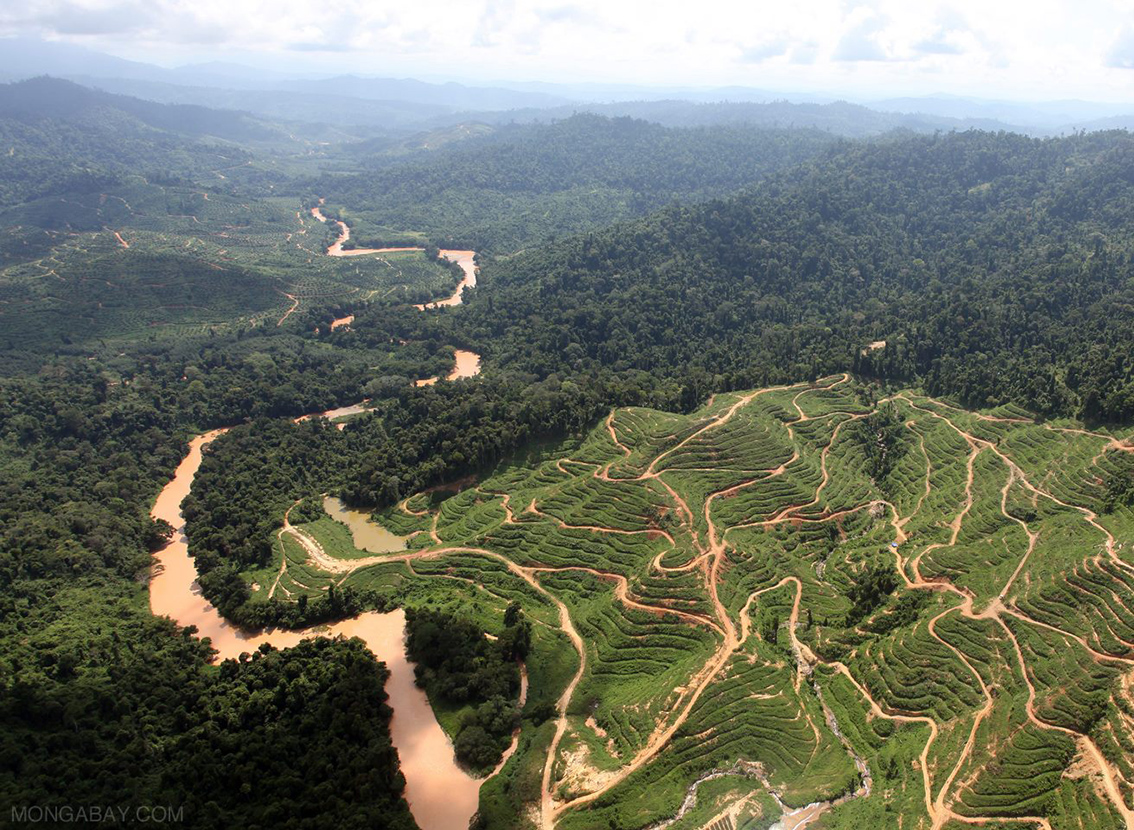
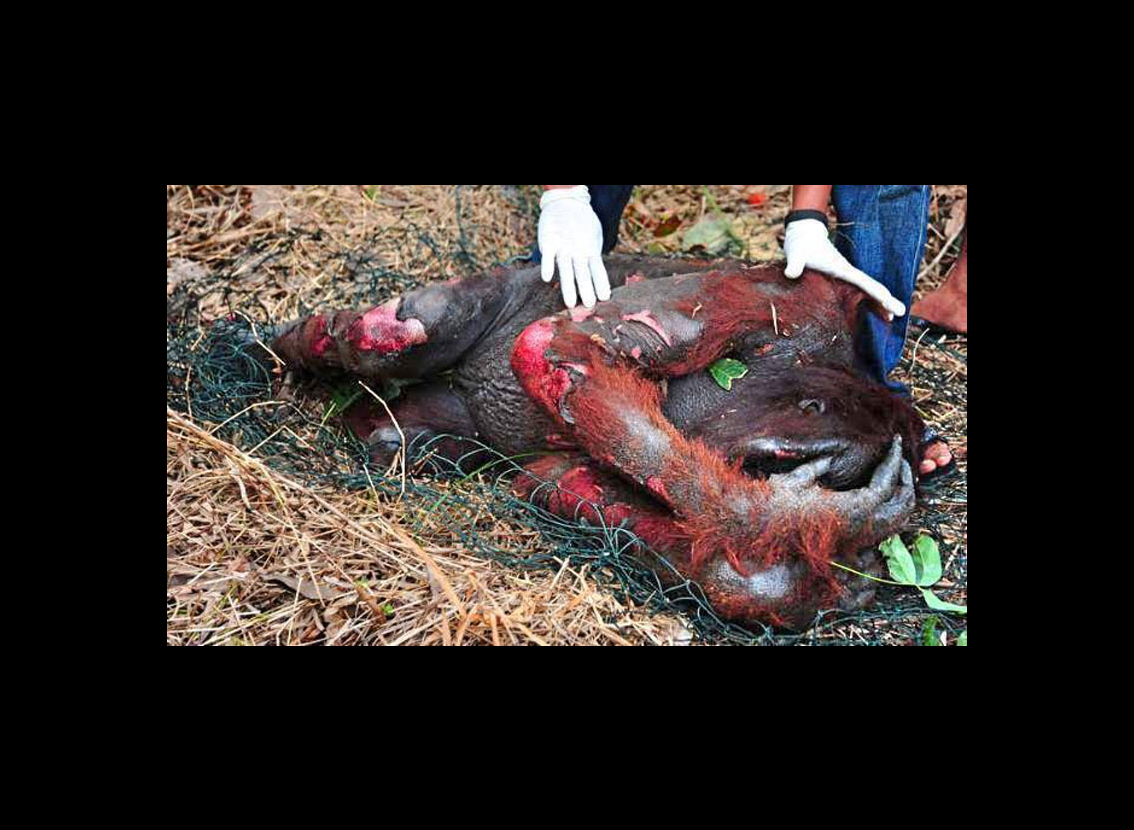
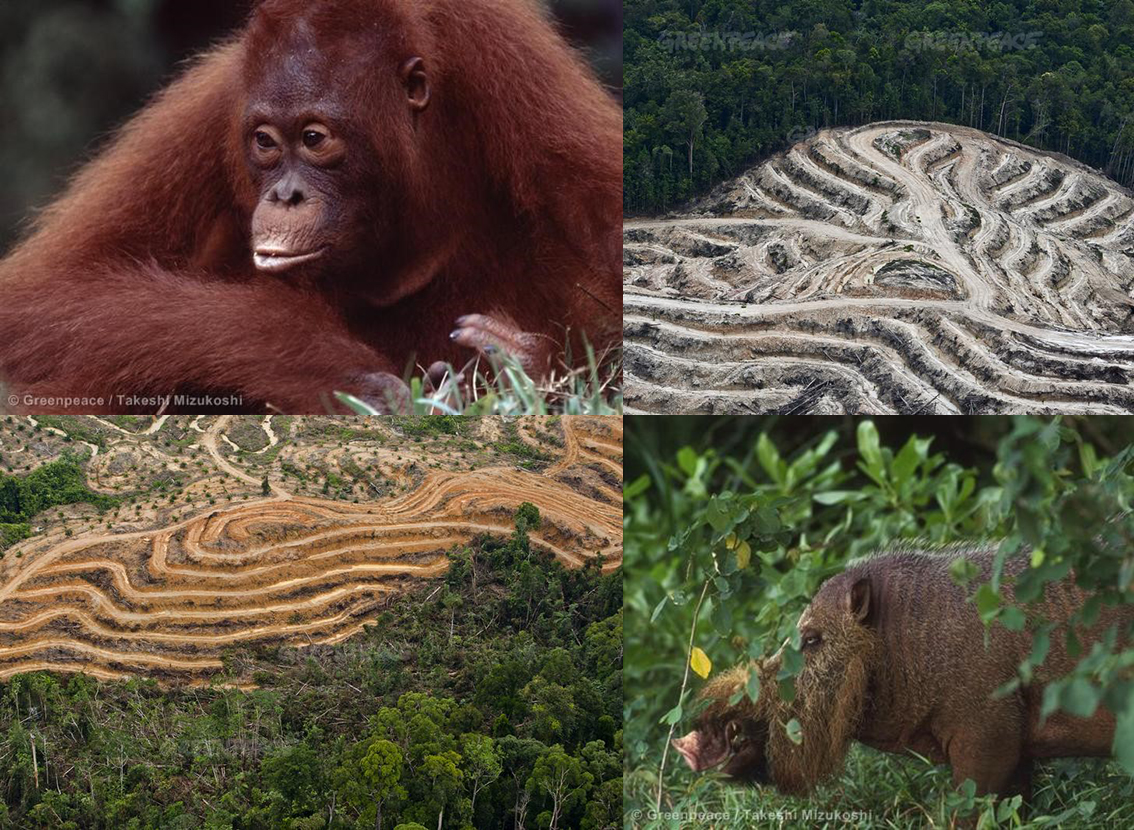
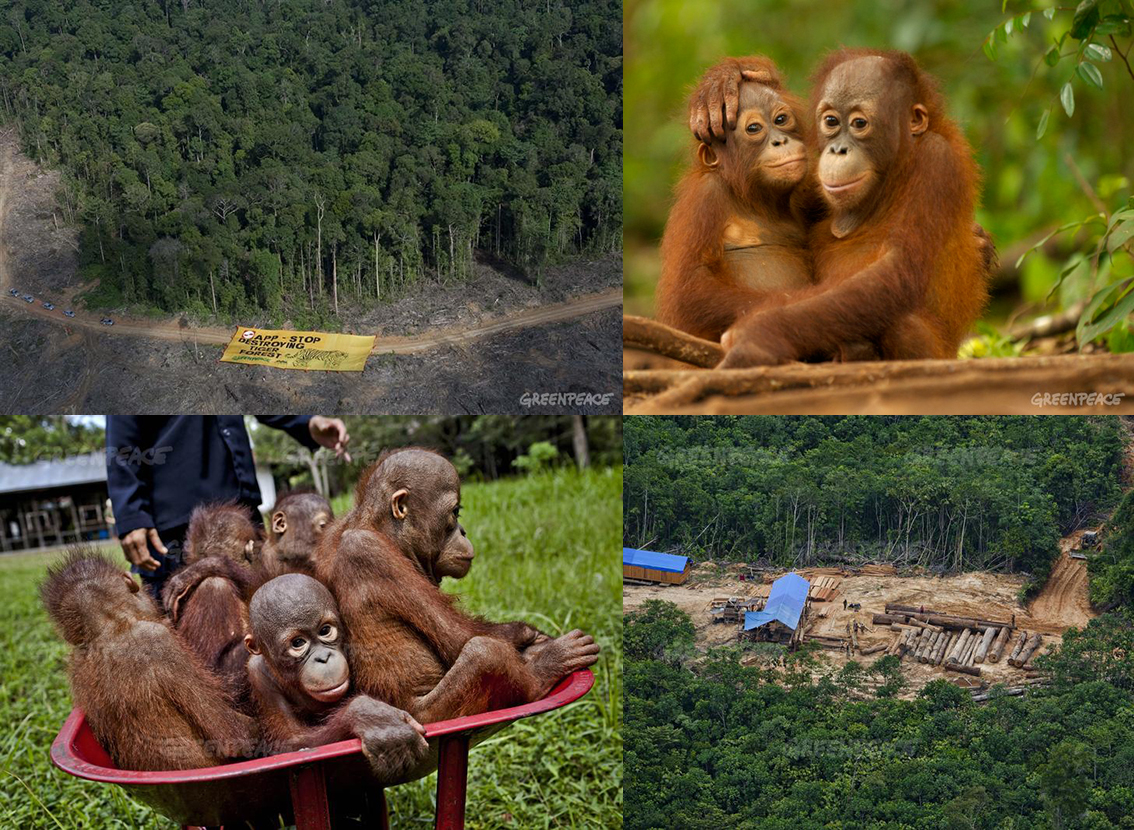
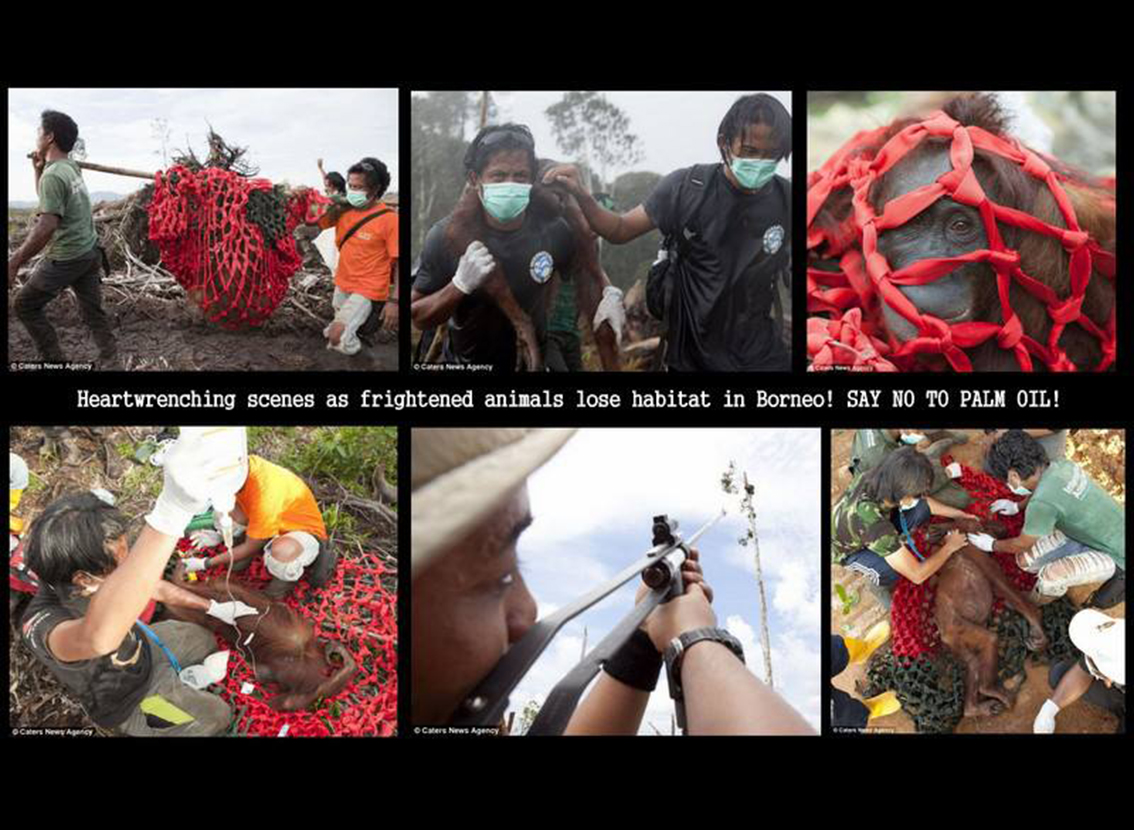


 PL
PL